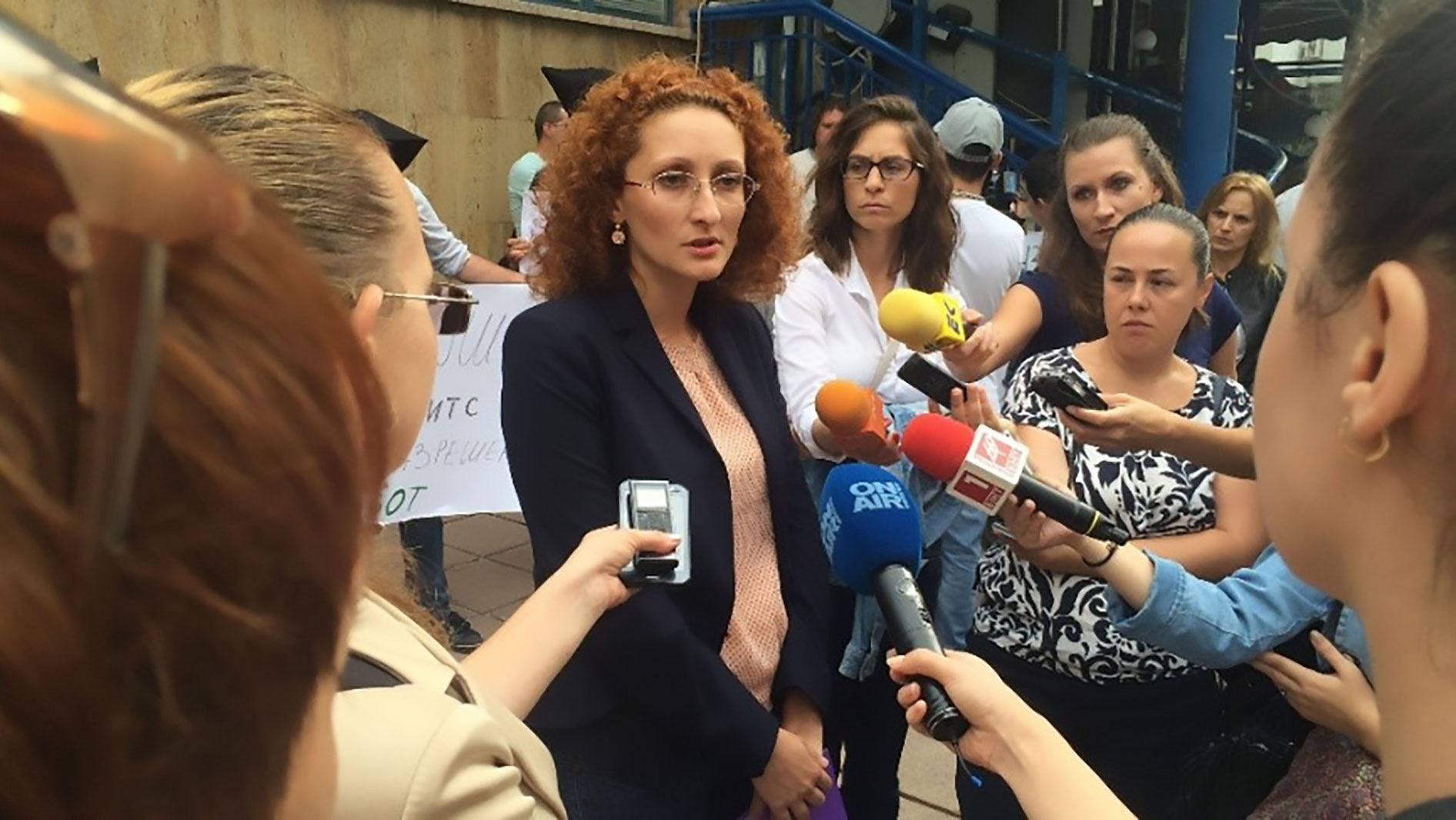Share Article
When Silvana Lesidrenska learned she had chronic hepatitis B virus (HBV) in 2006, she wasn’t given much information by the doctors who diagnosed her.
“The doctors in my town said, ‘You don’t have to worry about it, it’s just a virus,’” she recalls. “But a nurse told me to find a specialist because I could die from this.”
Silvana moved to the country’s capital, Sofia, in search of a specialist in HBV, and ultimately received the treatment she needed to keep the virus under control. But she was also confronted with considerable levels of stigma, which in 2009 inspired her and eight other people living with viral hepatitis to help create HepActive, a nonprofit dedicated to improving care and support for people with viral hepatitis in Bulgaria. In the 11 years since its creation, the organization has made significant progress in helping to reduce barriers to care, increased testing and even changed national laws to improve treatment for people living with viral hepatitis.
Much of the support HepActive offers is influenced by Silvana’s own struggles living with HBV. Despite an estimated 210,000 people living with HBV and 77,000 with chronic hepatitis C virus (HCV) in Bulgaria, education about the viruses is scarce.
“There is a lack of information and resources in the medical system,” Silvana says. “As a result, patients are often on their own when it comes to finding doctors and treatment plans.”
HepActive’s website became an important resource for information about viral hepatitis and treatment. The organization was created by patients, for patients, and provides support groups that offer solidarity and advice, as well as psychological and viral hepatitis screening services.
Silvana says since 2015, the screening services have taken place often in smaller cities and towns in Bulgaria that have difficulty accessing viral hepatitis screening and testing. In addition, HepActive helps those who test positive initiate and maintain treatment.
The organization also aims to address a shortage of specialists who understand viral hepatitis and provide expertise in locations outside of urban areas where people not only have difficulty accessing ongoing treatment and care, but also often experience significant stigma.
“I have been denied care by dentists and gynecologists because they were afraid that I was going to infect them,” Silvana says.
Acutely aware of the challenges facing viral hepatitis patients, Silvana and her team have worked to address the issues one by one.
For example, to access treatment in Bulgaria, regular blood tests must be conducted, and people with HBV previously had to be admitted to the hospital for several days every three months. This was life-altering and difficult for people to maintain. HepActive successfully advocated for the mandatory hospitalizations to be reduced to once every six months. Similarly, liver biopsies were requirements for people living with HCV to receive care. HepActive filed a complaint with Bulgaria’s Supreme Court, and as of January 2020, liver biopsies are no longer mandatory for treatment. The organization also advocated for blood centers to update testing methods and for those who test positive for viral hepatitis to be directly informed.

Silvana advocates for healthcare rights and access for people living with viral hepatitis.
Silvana says she is most pleased with the creation of CheckPoint Sofia in 2016 – a partnership project among HepActive and two other organizations focused on providing HIV services. The drop-in clinic offers anonymous and rapid HBV, HCV and HIV testing in one location. Those who test positive receive medical information and psychological support and are linked to care. CheckPoint Sofia sees 7,000 people each year and has helped link more than 200 people who have tested positive to care.
“It’s great when you see some people after treatment, for hepatitis C for instance,” Silvana says about the facility. “They’ll drop in and say, ‘Thank you for your support.’”
The COVID-19 pandemic has complicated care for people living with viral hepatitis in Bulgaria, as restrictions have made it difficult for people to travel to see specialists. For HepActive, a new challenge has arisen. While the organization has seen enormous success in its short tenure, its financial future is unclear.
“When we don’t have any funding, we can’t provide the same services,” Silvana says.
Seeing the value CheckPoint Sofia has brought to people living with viral hepatitis and HIV in Bulgaria, Gilead provided a Gilead CARES emergency grant to the Health Without Borders Association, which created CheckPoint Sofia in partnership with HepActive. Gilead CARES committed $20 million to nonprofit groups facing an imminent closure or termination of vital services due to the pandemic.
Silvana says this funding is critical because there is still substantial work to be done to continue breaking down the barriers to care and advocating for people with viral hepatitis.
And as long as there is work to be done, she plans to keep showing up.
“If we can help 100 patients, that’s not a little thing,” she says. “I know in my heart this is the right thing to do.”

